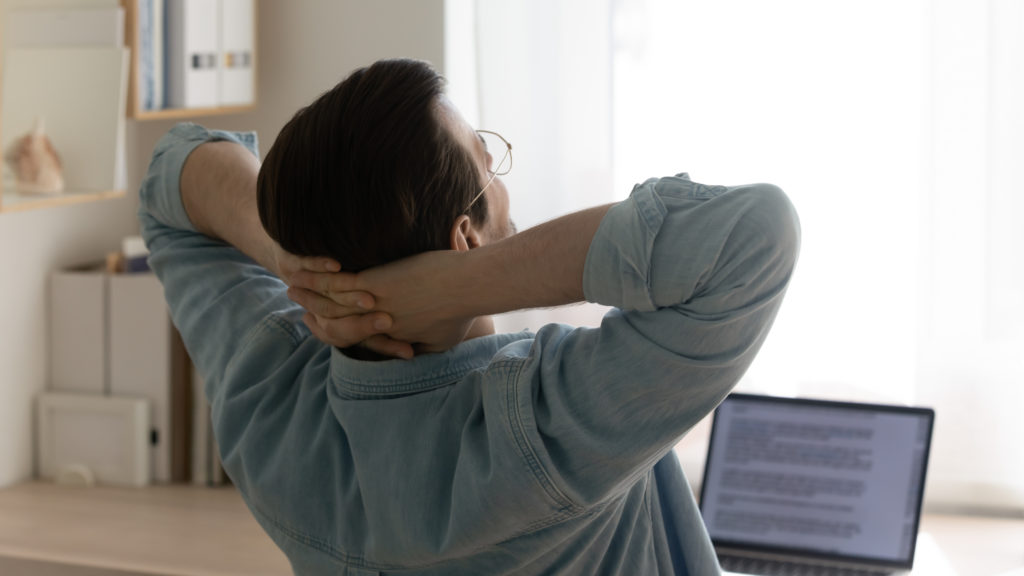Quick Hits
Daily brief research updates from the cognitive sciences
 We all know that taking breaks is good for our brain and wellbeing – in fact we absolutely need to take breaks. It is just the way our brain and body is designed.
We all know that taking breaks is good for our brain and wellbeing – in fact we absolutely need to take breaks. It is just the way our brain and body is designed.
But oftentimes in the workplace this can be challenging – we get stuck into piles of work and our attention is constantly pulled in different directions. We may also feel we do not have the time for a break with work to be done and deadlines looming. I know that feeling well.
Enter the micro-break. The term micro-break has now entered the world of research and refers to short breaks – less than 10 minutes according to many studies but often as short as one minute. The idea is that a micro-break is precisely that, micro, short, and doesn’t interrupt workflow for too long, or can be completed quickly.
Interestingly there is some research to show that we tend to automatically increase our micro-breaks when fatigued. This can be getting a cup of tea/coffee a visit to the toilet, or a simple stretch and look out of the window.
The results into micro-breaks are generally positive but are they consistent? Enter Patricia Albulescu et al. who have just conducted a review of 22 studies from the last 30 years. These included multiple variations of micro-breaks: different work settings, in controlled experiments, different types of breaks, and at different lengths.
The results were interesting – some intuitive and some counterintuitive.
First off, they found that micro-breaks increased vigour and decreased fatigue. That’s a very good thing: higher energy and lower tiredness. Therefore, a clear correlation with improved wellbeing.
However, on first glance the data didn’t show any increase in performance. But on second look they found that there was a link to better performance with creative or clerical tasks and here the longer breaks were more effective. This did not translate to cognitive demanding tasks.
This may seem counterintuitive but shows that a short break from monotony or creative tasks can really help but that demanding cognitive “heavy lifting” type of tasks seem to require more recovery. This is actually logical.
What this therefore shows is that micro-breaks should be a part of a daily work routine for many, if possible. They contribute to increasing energy and reducing fatigue. But be aware that longer breaks are also necessary to reset cognitive functions. Note also that combining this with exercise can be highly beneficial. One of my top tips is take a 3-minute walk every 45 minutes.
This is because light activity, and particularly walking, can also contribute to cognitive function and health – multiple short walks are as beneficial to health as a few longer walks. And that ain’t bad either.
I also wonder how much of this is contribution to the sense of comfort, energy, and motivation with working virtually or work from our home offices. Micro-breaks are easier and more common in the home environment is my intuition and therfore contributes to the comfort (amongst other factors).
But for now, remember that micro-breaks are good for you. So don’t feel guilty about it. Rather make this a fixed part of your workday!

Andy Habermacher
Andy is author of leading brains Review, Neuroleadership, and multiple other books. He has been intensively involved in writing and research into neuroleadership and is considered one of Europe’s leading experts. He is also a well-known public speaker, speaking on the brain and human behaviour.
Andy is also a masters athlete (middle distance running) and competes regularly at international competitions (and holds a few national records in his age category).
Reference
Patricia Albulescu, Irina Macsinga, Andrei Rusu, Coralia Sulea, Alexandra Bodnaru, Bogdan Tudor Tulbure.
‘Give me a break!’ A systematic review and meta-analysis on the efficacy of micro-breaks for increasing well-being and performance.
PLOS ONE, 2022; 17 (8): e0272460
DOI: 10.1371/journal.pone.0272460
More Quick Hits
Coffee Makes Business Teams More Effective
Quick HitsDaily brief research updates from the cognitive sciences just couldn’t resist reviewing this piece of research, from a few years ago, after I stumbled across this (likely because some background algorithm had recommended it to me based...
Caffeine Makes You More Prone to Impulsive Buying
Quick HitsDaily brief research updates from the cognitive sciences fascinating piece of research just published shows that drinking coffee makes you more impulsive. That means you are likely to buy more, and more items you actually don’t need....
Healthy Brains Are Hotter Than You Think
Quick HitsDaily brief research updates from the cognitive sciences hen we get sick we get a fever and we all know what our body temperature should be: around 37°C. Too much above that and we have a fever, and too much below and we risk...
Unpredictable Parents Disrupt Brain Circuitry in Children
Quick HitsDaily brief research updates from the cognitive sciences ntuitively we all know that good parenting is essential to kids’ healthy development. We all agree on that. But as soon as we try to define what good parenting is we then enter into...
A New Study on Inter-Brain Synchronisation
Quick HitsDaily brief research updates from the cognitive sciences n case you didn’t know it brain synchronisation (or inter-brain synchronisation) is a thing. And a pretty cool thing. This happens when two, or more, people do similar things...
Unique Social Genes in Human Beings
Quick HitsDaily brief research updates from the cognitive sciences ne differentiating factor with human beings is our pro-sociality. This means we are a social species, and this sociality is seen in our ability to empathise, be socially tolerant,...






